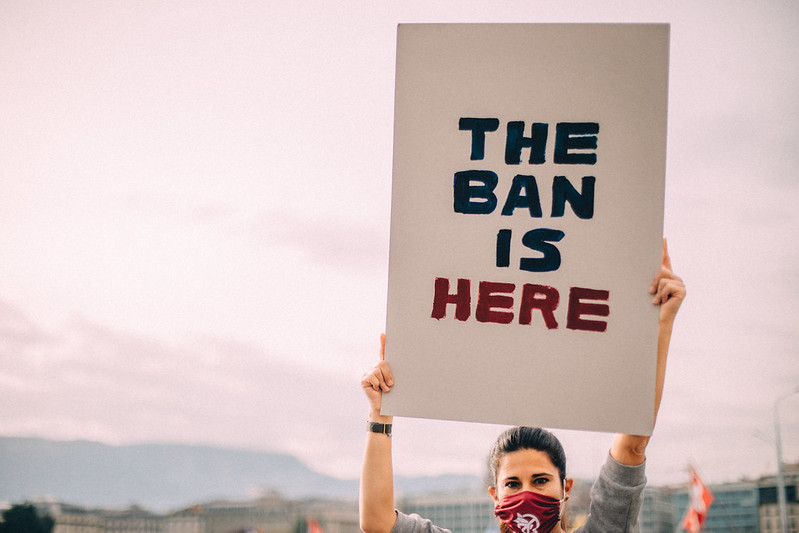There is an historic opportunity coming, the first Meeting of States Parties to the only treaty making nuclear weapons illegal. No matter which government might be in place, everyone agrees a world without nuclear weapons would be safer than a world with them. The growing risks of any use of nuclear weapons, combined with increased information about the catastrophic humanitarian harm they cause and democratic pressure is why the Netherlands participated in the negotiations for the Treaty on The Prohibition of Nuclear Weapons (TPNW). In March 2022, countries that joined the treaty, and others who seek a world free of the nuclear threat, will come together in Vienna.
The first meeting of states parties (“1MSP”) to the Treaty on the Prohibition of Nuclear Weapons (TPNW) is scheduled to take place at the United Nations Office in Vienna from 22 to 24 March 2022.
Why should the Netherlands attend 1MSP?
Multilateral cooperation
The Netherlands supports multilateral cooperation “in our collective pursuit of a safer world”[1], and participates in numerous forums to encourage the comprehensive and verifiable elimination of nuclear weapons.[2] Just as no country would be capable of dealing with the consequences of any use of nuclear weapons alone, the Netherlands in its commitment to multilateralism should join every effort to end the nuclear threat in cooperation with others.
Democratic demand
The Dutch government has recognized “the catastrophic humanitarian consequences that would result from the use of nuclear weapons”[3], and participate in three conferences on this issue as well as resulting negotiations for the Treaty on the Prohibition of Nuclear Weapons. Joining the Treaty has broad public support, polls show that 78% want to see the Netherlands join, and 68% support joining even if it is the first NATO ally to do so.[4]
Growing support in NATO
In Belgium, the government formed a committee to explore how the treaty could “give new impetus” to disarmament. In France, a parliamentary committee asked the government to “mitigate its criticism” of the treaty. In Italy, Parliament asked the government “to explore the possibility” of signing the treaty. And in Spain, the government made a political pledge to sign the treaty at some point. The recent Norwegian government coalition agreement includes attendance at 1MSP as well, joining Nordic colleagues from Finland and Sweden. All signs are pointing to a German coalition government that will also attend the March meeting as an observer.
Building Bridges
The government has the opportunity to engage with the TPNW member states, in particular to raise concerns with verification, as well as to discuss processes which might engender greater political support, two stated priorities of the government in regard to the treaty.[5] Positive engagement with the TPNW is also an issue supported by a majority of Dutch political parties. This is reflective of trends across NATO allies, which are increasingly in support of the TPNW.[6]
The Dutch government consistently positions itself as a bridge builder between those countries armed with nuclear weapons and those without. The Netherlands participates in nearly all forums related to the pursuit of a nuclear weapon free world, both formal and informal, including inter alia the Stockholm Initiative, the Non Proliferation and Disarmament Initiative (NPDI), several Groups of Governmental Experts, and the International Partnership for Nuclear Disarmament Verification (IPNDV). The attendance of the Netherlands at the first Meeting of States Parties to the Treaty on the Prohibition of Nuclear Weapons would be in line with the stated objectives to engage in all multilateral forums with the aim to create the environment for the eventual elimination of nuclear weapons.
No legal barriers
In January 2019, then Foreign Minister S.A. Blok and Defence Minister A.Th.B. Bijleveld-Schouten recognised that joining the Treaty on the Prohibition of Nuclear Weapons would not require any changes to existing Dutch legislation.[7] Only political issues prevent joining the treaty. It is through dialogue that these political issues can be addressed and a pathway towards reconciliation can be built. There is precedent, as the Netherlands attended the First Meeting of States Parties to the Convention on Cluster Munitions as an observer as well.
Background
At this inaugural meeting, States parties to the TPNW will gather to commit to concrete actions to implement obligations under the Treaty, including on providing assistance to victims of nuclear weapon use and testing, beginning to remediate contaminated environments (Article 6) and universalising the treaty (Article 12). It will also be an opportunity for States to discuss some of the treaty’s technical details, like setting a deadline for the elimination of nuclear weapons for nuclear-armed states that join (Article 4).
Other states not parties to the Treaty, as well as relevant UN agencies, other international organizations or institutions, regional organizations, the International Committee of the Red Cross, the International Federation of Red Cross and Red Crescent Societies and non-governmental organizations, are invited to attend the Meeting as observers.
For more information about the joining 1MSP as an observer, see the ICAN briefing here: https://www.icanw.org/1msp_observing
Also see the United Nations website on 1MSP: https://meetings.unoda.org/meeting/tpnw-msp-1-2022/

